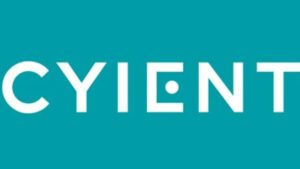Amnesty International Reports on Human Rights Abuses in Garment Industry
Governments, factories, and global fashion brands continue to profit from the repression of garment workers and the violation of their labor rights in Bangladesh, India, Pakistan, and Sri Lanka, according to two reports released by Amnesty International.
Agnès Callamard, Secretary General of Amnesty International, described the situation as “an unholy alliance” between fashion brands, factory owners, and the governments of these countries, which sustains an industry notorious for systemic human rights violations. Callamard stated, “By failing to ensure that the right of garment workers to unionize and collectively bargain is respected, the industry has thrived for decades on the exploitation of a grossly underpaid, overworked and mostly female workforce.”
The reports—titled ‘Stitched Up: Denial of Freedom of Association for Garment Workers in Bangladesh, India, Pakistan and Sri Lanka’ and ‘Abandoned by Fashion: The Urgent Need for Fashion Brands to Champion Worker Rights’—highlight severe anti-union abuses within the garment sector. These include widespread violations of workers’ rights, harassment, and violence perpetrated by employers.
Research for the reports, conducted by Amnesty International between September 2023 and August 2024, comprised 88 interviews across 20 factories in the four countries. The findings represent a broader condemnation of the garment industry’s business model, which undermines the rights of workers in the relentless pursuit of profit for shareholders, mainly among Western fashion companies.
In November 2023, Amnesty International surveyed 21 major brands and retailers in nine countries—including Germany, Denmark, Japan, Spain, Sweden, the UK, the USA, and China—seeking information on their human rights policies, monitoring efforts, and concrete actions related to freedom of association and gender equality. Brands such as Adidas, ASOS, Fast Retailing, Inditex, Otto Group, and Primark provided full responses, while others, including Boohoo, H&M, Desigual, Next, and Gap, either partially responded or failed to reply.
Workers across all four countries reported that fear of repercussions from employers effectively prevented them from joining labor unions. Union organizers noted a pervasive climate of intimidation, with supervisors and factory managers frequently harassing or even terminating employees for union activities, violating their rights to freedom of association.
In India, many home workers engaged in garment production, such as those involved in embroidery or garment finishing, are not classified as employees under labor laws. As a result, they are ineligible for pensions, employment-related benefits, or union membership.
The majority of the garment workforce in South Asia is comprised of women, many of whom are rural migrants or from marginalized backgrounds. Despite their prominence in numbers, they remain underrepresented in management roles within factories, reflecting broader societal issues such as patriarchy, class, ethnic, religious, and caste discrimination.
Female garment workers frequently report experiences of harassment, physical assault, and sexual abuse in the workplace, but seldom receive justice. A lack of effective, independent mechanisms to address grievances, along with state-backed restrictions on organizing, allows such abuses to persist. One union organizer from Pakistan recounted, “I was touched physically and abused verbally. No one in management would listen to my complaints, then I asked other women to organize. I was threatened with dismissal many times.”
The reports underscore the urgent need for comprehensive reforms in the garment industry to safeguard the rights and dignity of workers across South Asia.
Tags: Amnesty accues global fashion brands of repressing garment workers in South Asia Extract 5 SEO-friendly keywords as tags. Output only keywords, comma separated.
Hashtags: #Amnesty #accues #global #fashion #brands #repressing #garment #workersin #South #Asia










